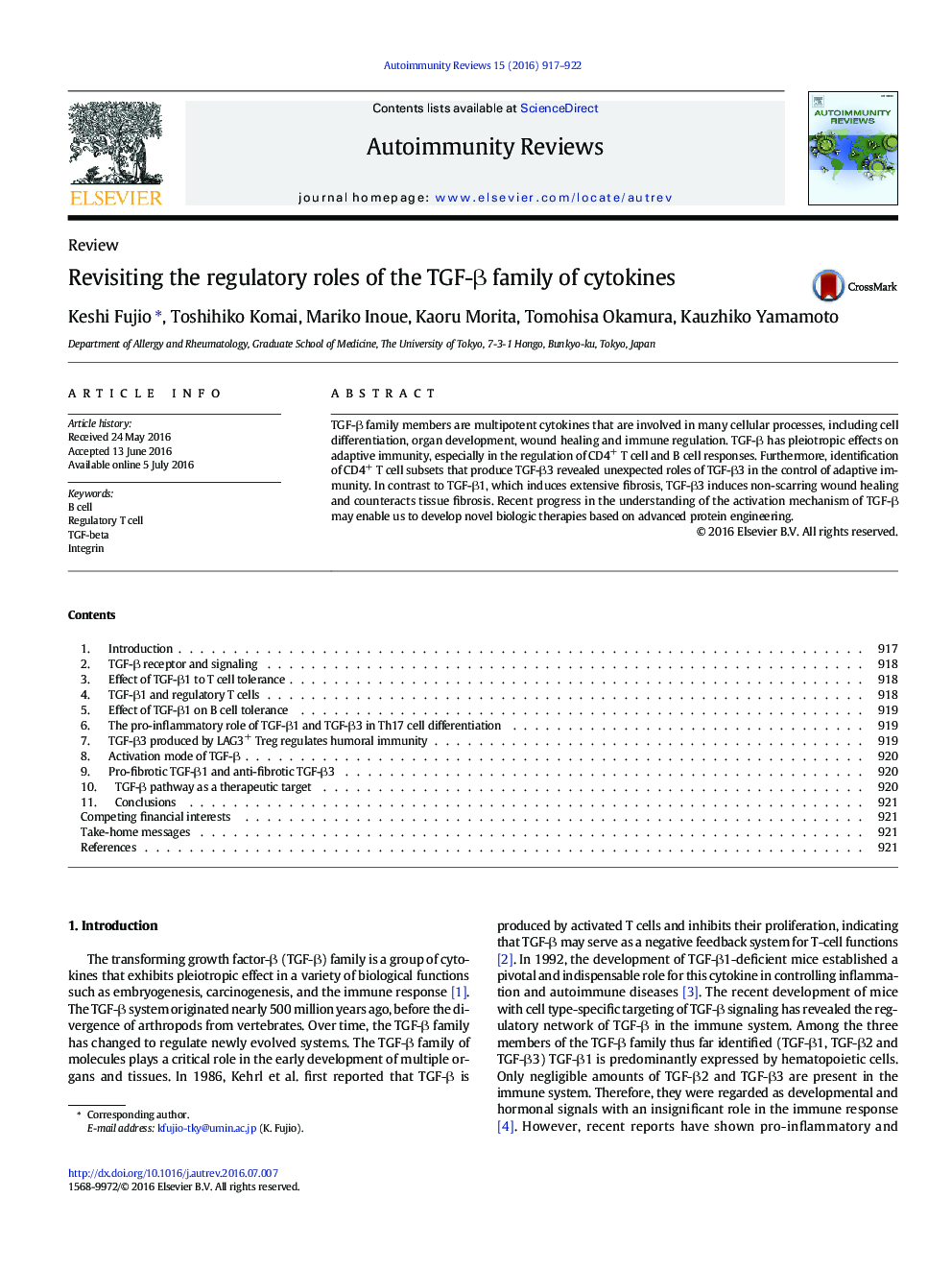| Article ID | Journal | Published Year | Pages | File Type |
|---|---|---|---|---|
| 3341291 | Autoimmunity Reviews | 2016 | 6 Pages |
Abstract
TGF-β family members are multipotent cytokines that are involved in many cellular processes, including cell differentiation, organ development, wound healing and immune regulation. TGF-β has pleiotropic effects on adaptive immunity, especially in the regulation of CD4+ T cell and B cell responses. Furthermore, identification of CD4+ T cell subsets that produce TGF-β3 revealed unexpected roles of TGF-β3 in the control of adaptive immunity. In contrast to TGF-β1, which induces extensive fibrosis, TGF-β3 induces non-scarring wound healing and counteracts tissue fibrosis. Recent progress in the understanding of the activation mechanism of TGF-β may enable us to develop novel biologic therapies based on advanced protein engineering.
Related Topics
Life Sciences
Immunology and Microbiology
Immunology
Authors
Keshi Fujio, Toshihiko Komai, Mariko Inoue, Kaoru Morita, Tomohisa Okamura, Kauzhiko Yamamoto,
